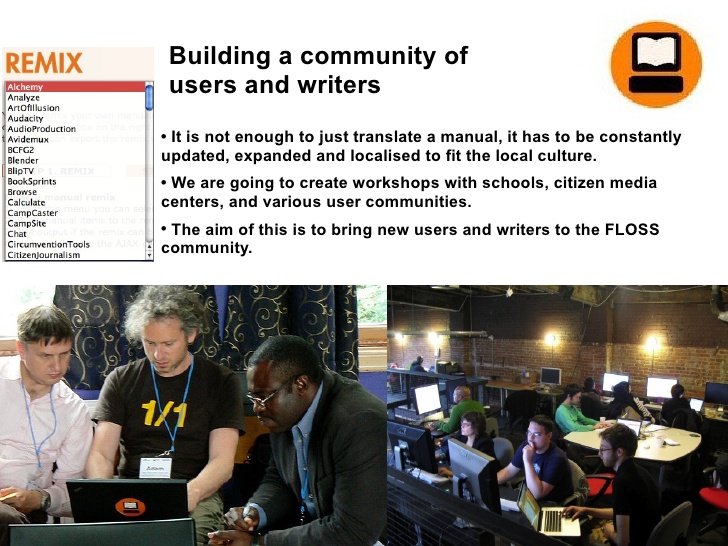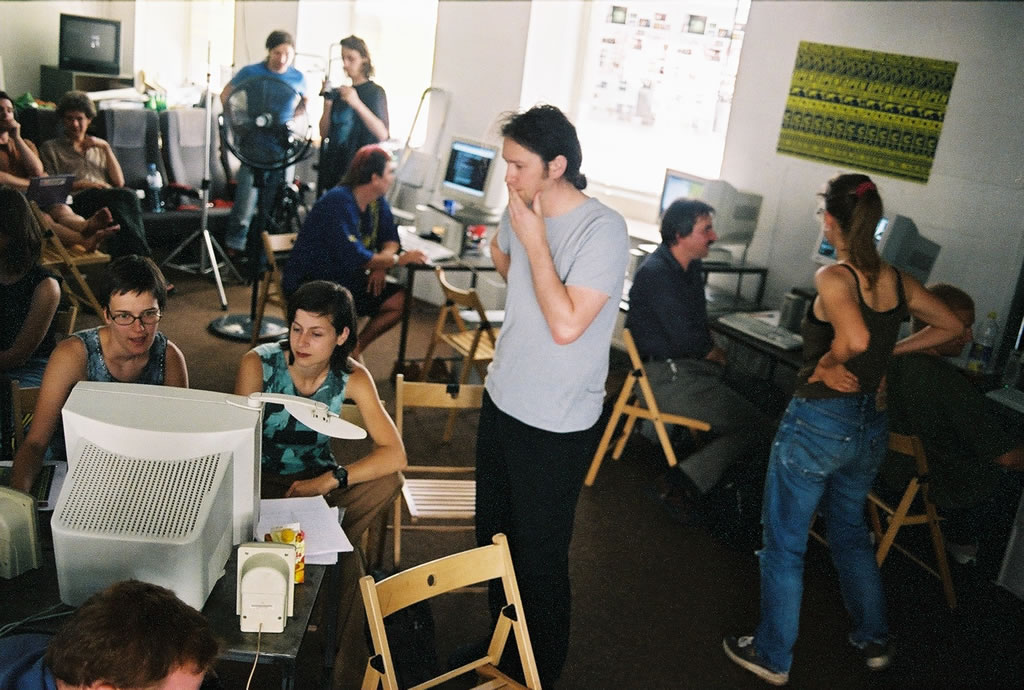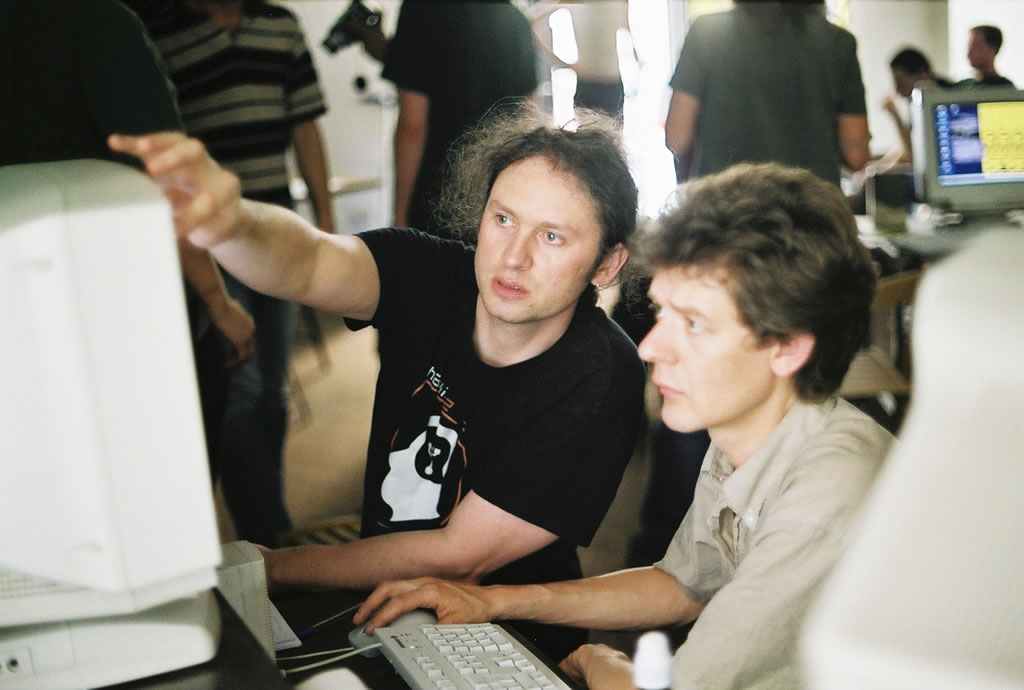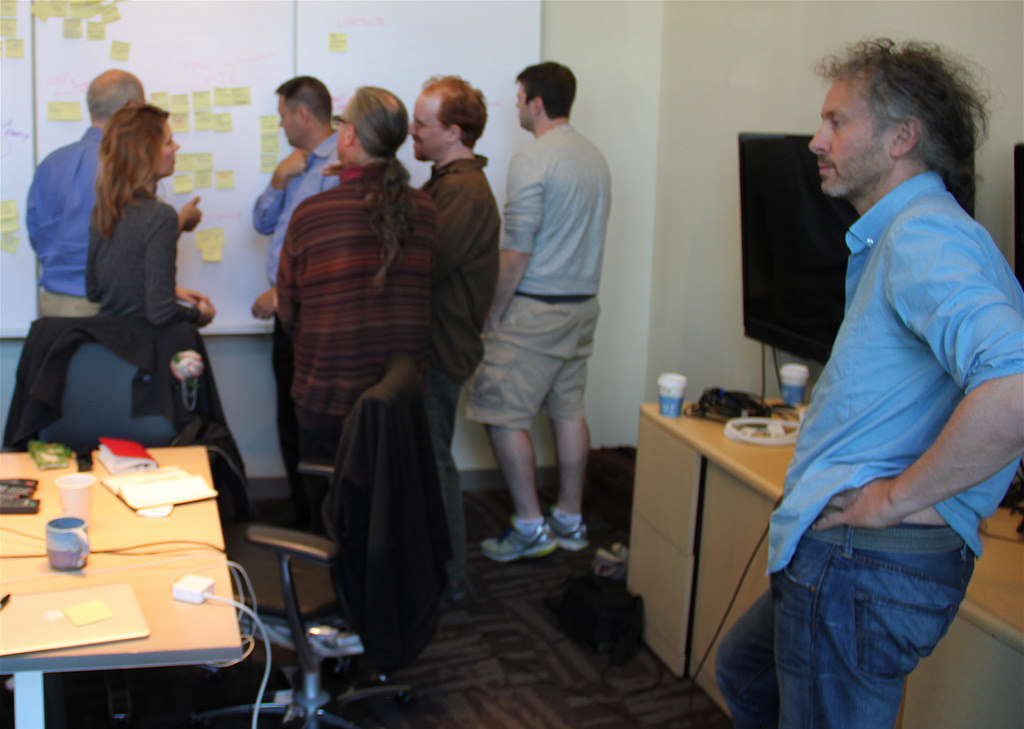I do a lot of facilitation and I’m very good at it. I don’t know how I came to be a facilitator exactly, it’s not the sort of thing I think you go to school to learn. It just somehow comes out of you bit by bit on a road to achieving something else entirely. In my case, I think it came about while trying to build FLOSS Manuals (a community that produces free manuals about free software). FLOSS Manuals (FM) needed content, and I realised that it was not going to happen at the scale needed if I wrote it all myself. So I had to learn to build community and building community requires facilitation (even if you don’t know it at the time).

Anyway, long story short, I became a facilitator the hard way – by not knowing that it was facilitation that I was doing. I had no context. ‘How you get things done’ in the world seemed to be all about the doing of those things. If you want to write software manuals, for example, you wrote manuals. That is what publishers and author, editors etc did. Who ever heard of facilitation in the context? No one that I could find.
So it took me a while to even realise that facilitation could play a role in making manuals (books) and I only had that realisation after I first tried it the publishing industry’s way and failed. It’s even fair to say that I had no understanding that facilitation could have a role in helping people to make books until I had been facilitating people to make books for many years. I was that blind to the idea. Instead, I had this strange, slowly evolving awareness that somehow when I got people in a room and I was there also, then books resulted. It seemed like it was the participants that ‘were doing it’ and, bizarrely, every time we did it, it worked, every time we did it it was better than the last time, and I happened to be there to witness it.

It took me some time to work out that this result was because of the role I played. It took a very very long time – I would say, possibly, 2-3 years. The awareness didn’t come in one shot either. I first thought it must be the process that made it work. So I started trying some stuff out. I remember very strongly thinking that there was this process that actually existed, like publishing processes exist, and that it was concrete and tangible, but it was just that it was unknown. As seriously kooky as that might sound, that’s how I thought of it at the time. I felt I was discovering something that pre-existed, some process that just needed to be revealed.
Then, slowly, after Book Sprints were really kicking ass and producing remarkable books I’d have thoughts like ‘I wonder how important this process is?’ I wonder if it might actually be me that is the most important ingredient. Not me in an egoist way, like Adam Hyde is the only person that can do this (interestingly, other people thought this might be the case!), but maybe that it is not so much the process but what I am doing that is making this work.

So comes the understanding of the extremely interesting and tangled relationship between facilitation and method. I spent many years untangling it and now I think I have a 1.0 understanding. Like, at the school of facilitation if you get this idea, then you are actually allowed to call yourself a facilitator…. it is that basic, and that central to what facilitation is. My un-battle-hardened synopsis is this series of truths might seem a little contradictory: a good facilitator is better with a good methodology. A good methodology is nothing without a good facilitator. And a good methodology to a good facilitator is nothing but an interesting yet weak navigational instrument.
Anyhow. My sum of this is that I often get people telling me they would be a good facilitator for this or that, or that they would be if they had the opportunity. I also see a world where methodology is seen as king, you just need to read it and follow it to the letter and you’ll be sweet! I can’t blame people for this. How could I when it took me so long to understand that facilitation was a thing? I can’t blame people when they think it’s something anyone can do. But of course, I do find it frustrating. I’m no saint! But after many many years of practice and experimentation, pondering, trying things out when I was terrified they would fail, failing, succeeding, mentoring others to do it well, exploring the weird psychology of it all, seeing others do it so very badly – I can now say I know what facilitation is and how special it is to be able to do well this invisible skill that so many do not know even exists.
